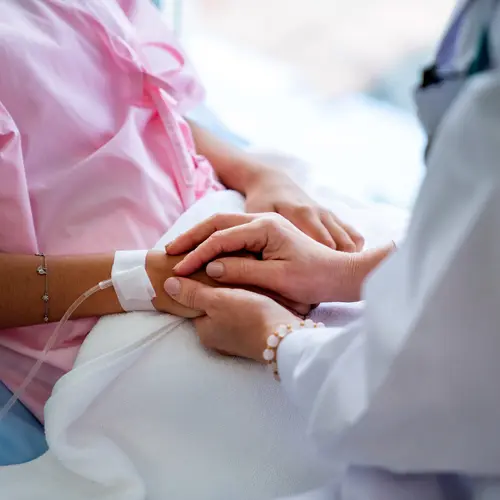If your doctor says you should get a lymph node biopsy, it's because they need to check for signs of disease, such as cancer. They take out a small piece of one of your lymph nodes and send it to a specialist, who will look at it under a microscope.
Lymph nodes are parts of your body that most folks aren't even aware they've got. There are hundreds of these small organs spread around inside you, and they play a key role in filtering out harmful things, including germs.
A lymph node biopsy can help diagnose cancer or see if it's gone to another area. It can also look for infections that can explain why you have certain symptoms, such as swollen lymph nodes.
Types of Lymph Node Biopsies
Sentinel lymph node biopsy. Your doctor may suggest this if they want to see if cancer that you already have, like melanoma or breast cancer, has moved to a new spot.
Sentinel lymph nodes are the first ones that cancer travels to when it spreads. If there aren't any cancer cells in them, your cancer probably hasn't moved from its original location.
Your doctor's first step when they do this kind of biopsy is to find your sentinel nodes. To do this, they'll inject a radioactive substance or a blue dye, or both, into the area near your tumor. Your lymphatic system -- a germ-fighting network of tubes and lymph nodes -- sends the dye or radioactive material to your sentinel nodes. Your doctor will be able to spot them by using a device that finds the radioactivity or sees the dye.
Next, your doctor takes out the nodes. You won't feel any pain while this is happening because you'll get general anesthesia, which means you won't be awake during the procedure. Most people are able to go home the same day.
Fine needle aspiration (FNA). When you get this type of biopsy, it's a lot like giving a blood sample, except that your doctor uses an even thinner needle with a hollow tube in the center.
Your doctor puts the needle into one of your lymph nodes to remove fluid and cells, which get examined later by other doctors. You may get local anesthesia -- medicine that keeps you from feeling pain in the area where the procedure gets done.
You will usually be able to go home the same day. If the doctor doesn't get enough of a sample to make a diagnosis, you may have to get other types of biopsies.
Core needle biopsy. It's the same basic procedure as the fine needle aspiration, but your doctor uses a larger needle with a larger hollow center. With this needle, they're able to take out a small block of tissue, which gives more information than you can get from fluid and cells. You usually get local anesthesia.
With both types of needle biopsies, the doctor may have to put the needle in you more than once to get enough of a sample to work with. Even then, the whole procedure should only take about 15 to 30 minutes.
Open biopsy. This is a little bit more like surgery. Your doctor cuts into your skin to remove all or part of a lymph node.
You usually get local anesthesia, but sometimes your doctor may suggest you get general anesthesia. You'll probably need stitches to close up the wound, but most people don't have a scar.
Lymph node biopsies are usually very safe, although you may have a little bleeding and pain afterward. Fine needle biopsies have the least recovery time. You should be able to get up and go back to your regular activities right away. If your doctor uses general anesthesia, you will need to rest before you can pick up your life again.
What Happens After
After you've had your biopsy, your doctor sends the lymph node -- or a small sample of it -- to another doctor called a pathologist. They'll put the tissue on a slide and examine it under a microscope. They'll check to see if the cells look normal or not. If they want to know if you have cancer, they'll specifically look to see if there are any cancer cells.
How long it takes to get results varies. If you had a sentinel node biopsy, a pathologist sometimes checks for signs of cancer while you're having your procedure. If they find cancer cells, your surgeon may decide to take out more lymph nodes right away, rather than have you come back another time.
With a fine needle biopsy, you may get your results the same day. For core needle and open biopsies, you will need to wait a bit longer. The amount of time depends on whether you need other tests and how many. If you don't need any, you might learn the results in 2 to 3 days after the procedure. Otherwise you may have to wait 7 to 10 days. Sometimes it can take even longer.

